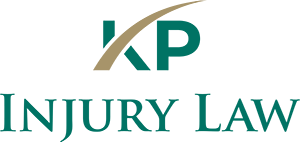
"Helping people is all I've ever wanted to do."
Kyle Peiter Founding Attorney
Truck Accident Lawyer in Goodlettsville, TN
A collision with an 18-wheeler can cause catastrophic injuries. We stand up for truck accident injury victims against truckers and trucking companies.
Every case is different, results may vary depening on the facts and legal circumstances. The attorney featured on this page is licensed in Tennessee and Georgia. For a full list, please see our locations page.

"Helping people is all I've ever wanted to do."
Kyle Peiter Founding Attorney

How Long Do I Have to File a Truck Accident Lawsuit in Tennessee?
In the state of Tennessee, you have just one year from the date of the big rig crash to file a lawsuit. When this one-year statute of limitations has passed, you will not be able to take legal action.
There are some exceptions to the one-year deadline to file a claim. You could be granted more time to take action if a victim was a minor at the time of the collision, for instance, or if the other driver committed a criminal offense that contributed to the accident (e.g., driving under the influence). You also have up to three years to file a lawsuit for property damage in a tractor-trailer accident.
It’s best to contact Goodlettsville truck accident attorney Kyle Peiter as soon as possible. During a free case review, he can determine if you have a viable injury claim and start the process of seeking compensation.
Can I Still File a Truck Accident Claim If I Was Partly at Fault?
Potentially, yes. Tennessee is a modified comparative negligence state. This means that you can still seek compensation as long as you are less than 50% at fault. If you are 50% or more at fault, you cannot seek compensation. Your percentage of liability is deducted from your damages.
For example, say that you were awarded $100,000 in damages and were determined to be 30% at fault in the semi-truck collision. Because of modified comparative negligence, you would ultimately be awarded $70,000.
Why Choose KP Injury Law for Your Truck Accident Case
KP Injury Law is dedicated to assisting the victims of tractor-trailer accidents in Goodlettsville and the greater Nashville area. Our legal team lives by our core values of integrity, transparency, and relentless advocacy. We’ll keep you updated throughout your case, providing compassionate and strong counsel every step of the way.
- Communication and Accessibility: At KP Injury Law, we will always be accessible to you by phone, text, or email should questions or concerns arise about your truck accident case.
- Peace of Mind Throughout the Process: Recovering from a tractor-trailer accident is stressful. You can trust our team to handle the paperwork, negotiate with the insurance company, and go to battle for your interests. This will give you time to focus on healing and planning for your future.
- You Pay Nothing Unless We Win: At KP Injury Law, we operate on a contingency fee basis. That means you owe us nothing unless we can reach a successful outcome in your semi-truck accident case. If we can’t settle or win a jury verdict, you don’t have to pay. It’s just that easy.
Get a Free Case Review from a Strong Goodlettsville Truck Accident Attorney
If you or someone you care about was seriously injured in an 18-wheeler collision, you need KP Injury Law on your side. Kyle Peiter and his team will be tireless advocates for you against freight companies and other powerful interests. To discuss your crash with a proven Goodlettsville truck accident attorney, contact our law firm today.
Common Causes of Tractor-Trailer Accidents
According to the Tennessee Department of Safety and Homeland Security, there were 13,068 large truck crashes in the state in 2024, causing 170 fatalities. Of that statewide number, 8,849 tractor-trailer crashes occurred on urban interstates and roadways. Focusing on just Sumner and Davidson Counties, there were 2,252 semi-truck crashes recorded in 2024, including 868 crashes on urban interstates and 310 collisions at intersections in urban areas.
Below are some of the most common causes of big rig crashes in the state.
Reckless Driving/Driver Error
We expect commercial truckers to be careful while they operate their vehicles on city streets or while on the interstate. When truckers exceed the speed limit, blow through a red light, fail to signal, or fail to yield, it can cause catastrophic crashes with others on the road.
Failure to Check Blind Spots
Big rigs have major blind spots due to their size and the position of the cab relative to the trailer. When truckers fail to check their blind spots, they run the risk of causing sideswipe crashes or running other vehicles off the road.
Truck Driver Fatigue
Truckers spend long hours behind the wheel, which can cause them to experience fatigue. While there are federal safety regulations that require truckers to take breaks, it is still possible for a trucker to be drowsy while on the road, and possibly even fall asleep while driving.
Distracted Driving
Distracted driving refers to any action that takes a trucker’s hands off the wheel and diverts their attention from the road. Examples include a trucker texting while driving, checking directions, looking up or watching something on the phone, eating while driving, or rubbernecking.
Truck Driver Inexperience
Operating a large truck requires extensive training and time on the road. New truckers may lack the necessary knowledge to avoid excessive speed on downhill roadways, maneuver a large vehicle during inclement weather, or know what measures to take during other kinds of hazardous road conditions.
Issues with Truck Maintenance
Tractor-trailers require regular repair and routine maintenance due to the many hours on the road and the miles they put in. When mechanics fail to make necessary repairs or are negligent while performing maintenance on an 18-wheeler, it could contribute to a major collision.
Mechanical Failure
In addition to maintenance issues, trucking accidents can be caused by all kinds of mechanical failures. The vehicle may have a critical design flaw that affects handling, tires may be old or in poor condition, and other vehicle parts and components may be unsafe or prone to failure.
Poor Road and Weather Conditions
Numerous road and weather conditions can make semi-trucks more challenging to operate safely, increasing the likelihood of large truck crashes in and around Goodlettsville. Dangerous road conditions include unrepaired potholes and a lack of lighting. Dangerous weather conditions include rain, snow, black ice, and heavy winds.
Common Types of 18-Wheeler Accidents
Below are some of the most common kinds of accidents when large commercial trucks are involved.
Rear-End Tractor-Trailer Collisions
When a large truck crashes into the back of another vehicle, the impact can be catastrophic due to the truck’s size and weight. These crashes often occur when truck drivers follow another vehicle too closely or when truckers fail to apply the brakes in time.
Jackknife Accidents
A jackknife accident happens when a semi-truck’s trailer swings out at an angle from the cab, resembling a folding knife. These kinds of accidents usually occur when a driver suddenly hits the brakes or when the road is slick. Jackknife crashes can block multiple lanes and impact several vehicles.
Underride Tractor-Trailer Accidents
An underride truck accident occurs when a smaller vehicle slides beneath the rear or side of a tractor-trailer. These kinds of catastrophic collisions typically happen when trucks stop suddenly or lack proper guards around trailers. Underride accidents are often fatal.
Semi-Truck Rollover Accidents
High winds, poorly balanced or secured loads, or sharp turns can cause a big rig to tip and roll over. Tractor-trailer rollovers pose serious risks to nearby drivers as well as cyclists and pedestrians on city streets. These kinds of truck crashes often lead to multi-vehicle pileups.
Big Rig Lost Load Accidents
Improperly secured cargo can spill onto the roadway or shift within the trailer, leading to accidents. These incidents can cause sudden hazards for other drivers and result in serious collisions. If cargo remains on the road, approaching motorists face numerous dangers, especially on a highway.
Potential Injuries in Big Rig Crashes
Injuries in large truck accidents are often catastrophic for motorists in smaller vehicles. These kinds of accidents generate a tremendous amount of force on impact. Even if a vehicle is outfitted with airbags and advanced safety systems, drivers and passengers may experience severe injuries with long-term effects.
- Broken Bones: The force of a semi-truck crash often results in multiple bone and joint fractures. Recovery from broken arms, legs, ribs, or hips can require surgery, physical therapy, and months off work.
- Loss of Limbs: The trauma in a crash may be so severe that it causes the loss of a limb or necessitates surgical amputation of a limb that has been so badly damaged that it cannot be saved.
- Internal Injuries: Blunt force trauma from a tractor-trailer collision can damage internal organs such as the liver, spleen, or lungs. These injuries are often life-threatening and require emergency treatment.
- Second- and Third-Degree Burns: Post-crash fires or hazardous materials released in a truck crash can cause serious burns. Burn injuries may involve long hospital stays, grafting surgeries, and permanent scarring.
- Neck and Back Injuries: Whiplash and herniated discs are common in truck collisions. These injuries can lead to long-term problems with chronic pain and limit a person’s ability to perform daily activities.
- Spinal Cord Injuries: Large truck accidents can cause severe trauma to the spine and spinal cord, leading to partial or complete paralysis. Victims may face a lifetime of medical care, rehabilitation, and mobility challenges.
Who Can Be Held Liable in a Semi-Truck Accident Case?
Different parties can be held liable for a semi-truck accident depending on the details of the case. When you work with Goodlettsville truck accident attorney Kyle Peiter, he will thoroughly investigate the accident to identify the liable party or parties and their role in the crash.
- The Truck Driver: If the truck driver acted negligently or failed to take mandatory breaks, they can be held liable for causing a major accident.
- The Trucking Company: Trucking companies may have been negligent in screening and hiring their truck drivers or failing to properly maintain their fleet of large trucks.
- The Cargo Loading Company: For accidents involving spilled cargo, companies that loaded the trailer could be held liable for carelessness.
- Maintenance and Repair Crews: Mechanics and technicians can be held liable if they did not properly inspect a tractor-trailer or overlooked necessary repairs.
- Other Potentially Liable Parties: Local road authorities, automakers and auto part manufacturers, and other drivers on the road may have contributed to a crash and can be held liable.
Damages in a Truck Accident Lawsuit
Economic damages are the types of accident-related losses that are easy to put a number on. Examples of economic damages from a tractor-trailer crash include:
- Medical Expenses: You can be compensated for the ambulance, stabilizing care, emergency surgery, physical rehabilitation, occupational therapy, and the use of any assistive devices after a trucking accident.
- Property Damage: You can be compensated for repairs or the replacement of a totaled vehicle. You can also be compensated for damage to any personal belongings at the time of the crash, and the cost of rideshare services or car rentals while you were without a vehicle.
- Lost Income: You can be compensated for loss of wages due to missing work or taking leave while you heal from your semi-truck collision injuries.
Lost Future Earnings: If you are no longer able to perform certain work duties after a tractor-trailer crash, you can be compensated for lost earning potential based on the change in your career trajectory.
Non-economic damages are the types of accident-related losses that are not as easy to quantify. Examples of non-economic damages from a tractor-trailer crash include:
- Pain and Suffering: You can be compensated for the pain you’ve endured after an 18-wheeler wreck as well as any chronic pain after you’ve recovered from your injuries.
- Diminished Quality of Life: You can be compensated for negative changes in your ability to do daily tasks and the inability to pursue past interests due to the big rig accident.
Loss of Consortium: You can be compensated for ways a tractor-trailer collision has negatively affected your relationships, which includes difficulties with companionship and intimacy.
If the at-fault driver is insured, their liability coverage may compensate you for medical expenses, lost income, and other damages. Most trucking accident claims are resolved through insurance, but if the driver is uninsured or underinsured, you may still have options—such as filing a claim through your own uninsured motorist coverage or pursuing a personal injury lawsuit directly. Confirming available insurance is a key step in determining how compensation will be recovered.
If you lose a family member in a fatal wreck with a large truck, KP Injury Law can help you file a wrongful death lawsuit against the liable party. While no amount of money can match the pain of losing a loved one, we can help seek compensation to help cover funeral expenses, grief counseling, and the loss of your loved one’s income.
Contact Our Truck Accident Lawyer in Goodlettsville, TN
When truckers and trucking companies cause catastrophic injuries, the people of the greater Nashville area can count on Kyle Peiter and his team for strong legal representation. To request a free consultation with an experienced Goodlettsville truck accident lawyer near you, contact our law office today. KP Injury Law is ready to take on trucking companies for the people of Tennessee.
